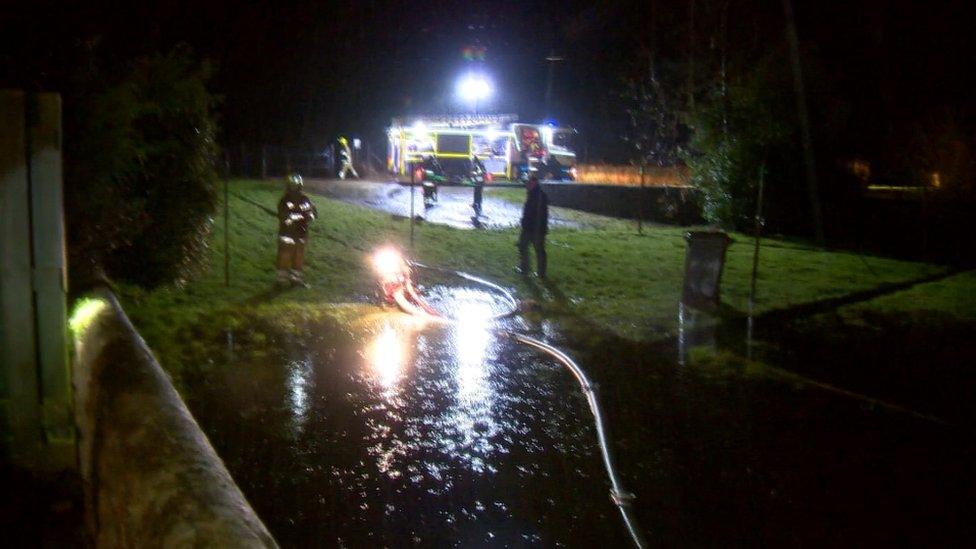More government money promised for flood-hit councils
- Published
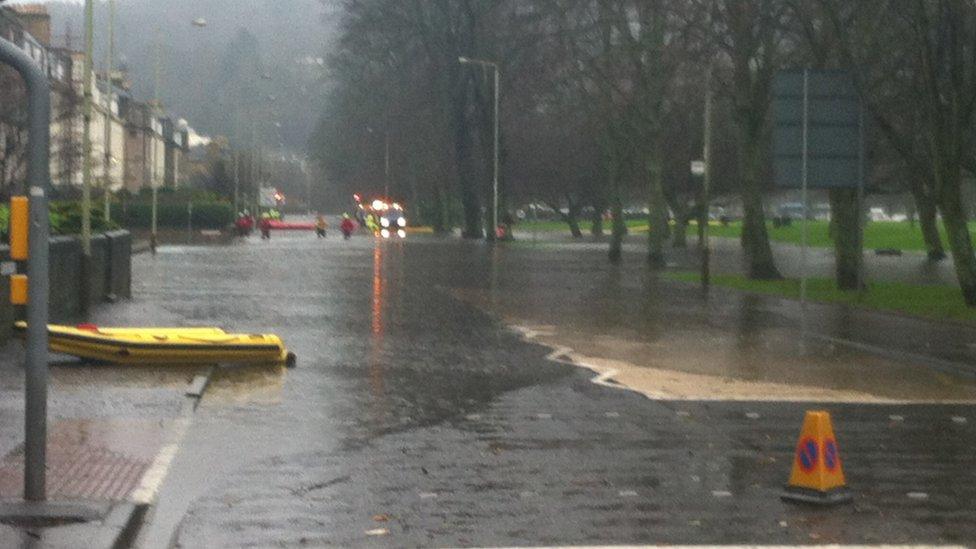
Marshall Place in Perth was one of the roads hit by flooding on Tuesday
More money will be made available to council's hit by recent floods, Finance Secretary John Swinney has said.
Mr Swinney told MSPs the funding would be in addition to the £4m announced in his draft budget in December.
He said the money could be used by councils to relieve council tax and business rates for flood victims.
Earlier he insisted a 6% cut to the Scottish Environment Protection Agency (Sepa) budget would not affect the flood forecasting service.
Flood waters are receding and the clean-up has begun in many areas but homes and travel routes are still feeling the impact of the recent severe weather.
Mr Swinney was answering MSPs' questions on the day the Met Office confirmed it was the wettest December since records began in 1910 with 351mm of rainfall recorded and temperatures 2.7C above the average.
2015 was also the second wettest year in Scotland, with only 2011 being wetter.
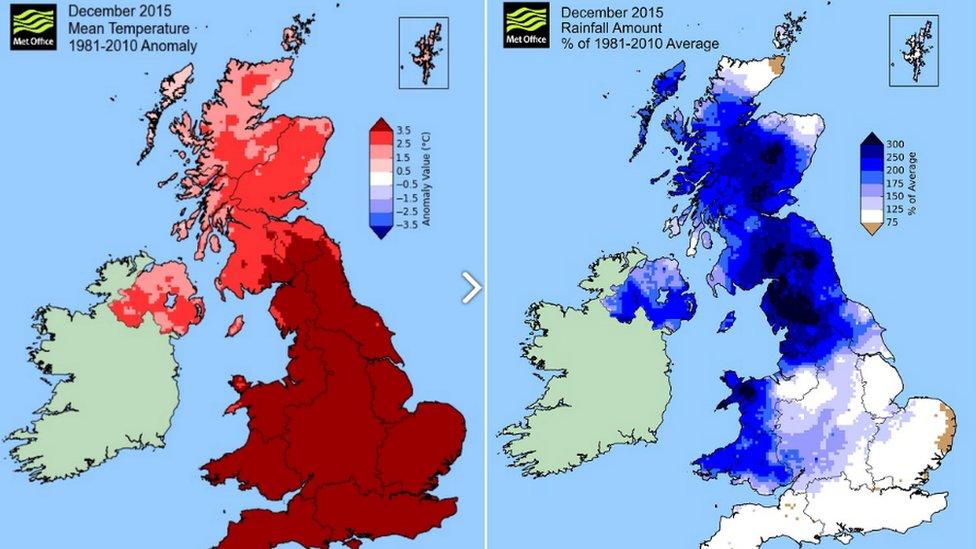
Mr Swinney told Holyrood that a £4m allocation to help the Scottish Borders, Perth and Kinross and Dumfries and Galloway after Storm Desmond would now be extended in light of the devastation wreaked by Storm Frank.
He said the damage inflicted upon the Aberdeenshire village of Ballater in particular was "incomprehensible", and he paid tribute to local firefighters who helped others while their own homes were being flooded.
Mr Swinney said: "In the light of the events of the last couple of weeks, I intend to provide a further allocation in relation to the cost that will be involved in localities.
"That will inevitably have some additional consequences for Dumfries and Galloway and I'll make announcements in due course once I've had due opportunity to have discussions with the local authority about how that can be taken forward."
He added: "I intend to make a further financial allocation from which I would expect Aberdeenshire Council to relieve council tax payers of their council tax bills, to relieve business rate payers of their business rate bills and then also to contribute towards some of the regeneration that will clearly be required to recover the situation in Deeside."
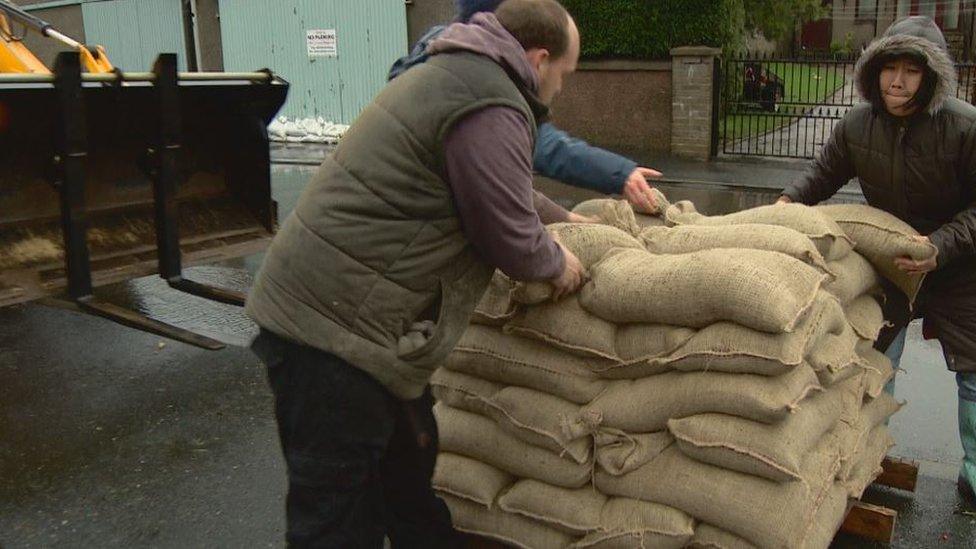
Sandbags were being distributed in Inverurie
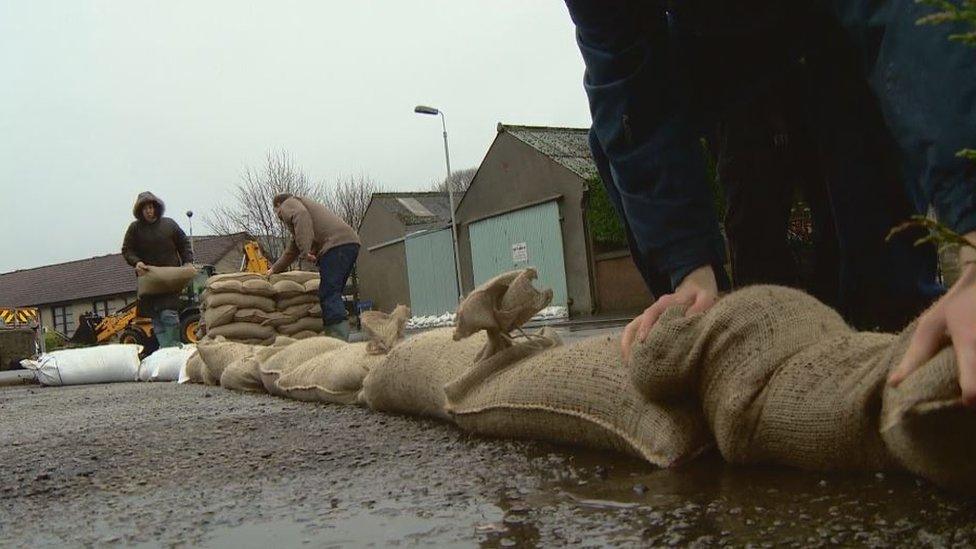
Earlier, Mr Swinney had defended a 6% cut to Sepa's funding announced in his December draft budget.
He said the flood forecasting role of Sepa had been protected from cutbacks and it was right the agency made efficiencies.
He said: "What Sepa is responsible for is a range of different measures - but as a public body we have to expect Sepa, like every other public body in the country, in the constrained financial environment in which we operate to take decisions that will ensure we can deliver greater impact and value from the use of a smaller amount of resources."
Scottish Labour has called for a review of the country's preparedness to deal with flooding in future.
The party's environment spokesperson Sarah Boyack said: "There are 100,000 houses across Scotland at risk and some of those houses have been built since 2009.
"So we have some tough question to ask about where we're putting new houses, where our flooding investment goes in terms of new defences.
"Because of climate change, this is not going to be one-off experiences. That's why I'm saying it needs a proper review. It needs local authorities working with the Scottish government."
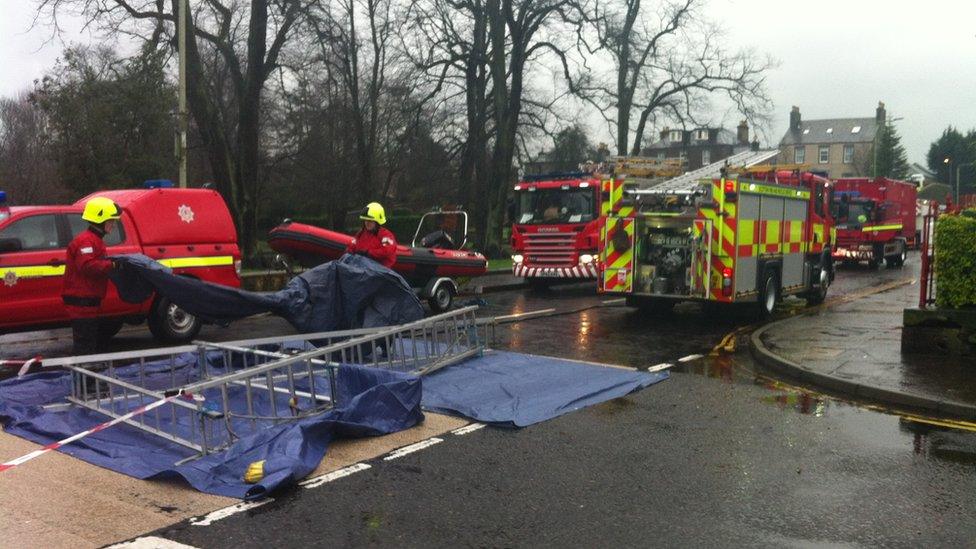
Emergency services respond to flooding on Perth on Tuesday
But Mr Swinney said flood prevention work was ongoing and such a review was unnecessary.
He told the BBC's Good Morning Scotland programme: "We have done that. We passed the Flood Management Act in 2009 in parliament and one of the requirements was to produce flood risk management strategies around the country.
"And we now have 14 of them just published in December by Sepa."
Mr Swinney said 42 formal flood protection schemes had been proposed for 2016 - 2021, costing an estimated £235m.
"There is funding within the local government settlement for the years going forward to adequately provide for all of those schemes," he said.
The local government umbrella organisation Cosla later expressed puzzlement at his comments, saying it was unaware of any promise of funding beyond the next financial year.
A spokesman said: "We are somewhat bemused by this statement from the Scottish government on funding for flooding.
"The position clearly set out in the deputy first minister's budget is that we only have funding for one year - for 2016/17 - and nothing beyond that."
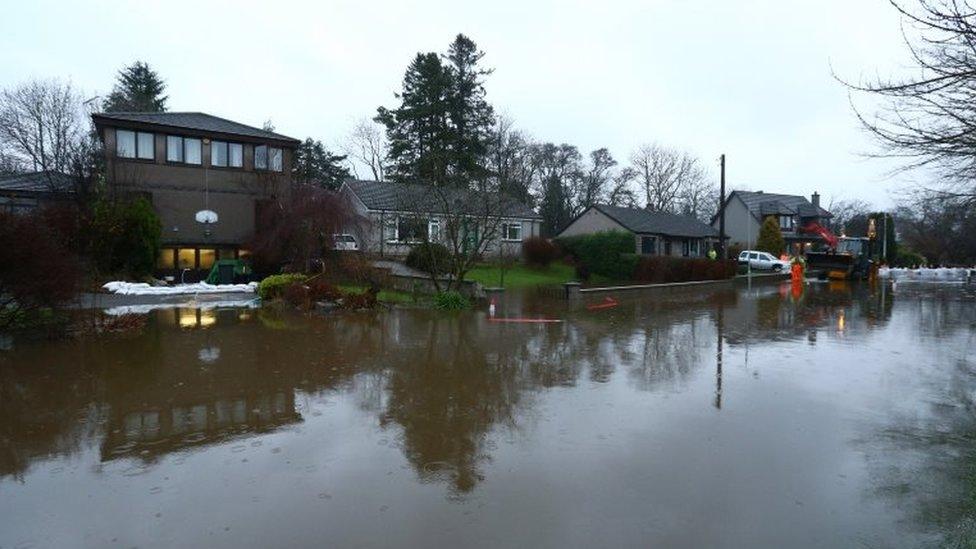
A local burn burst its banks in Aboyne
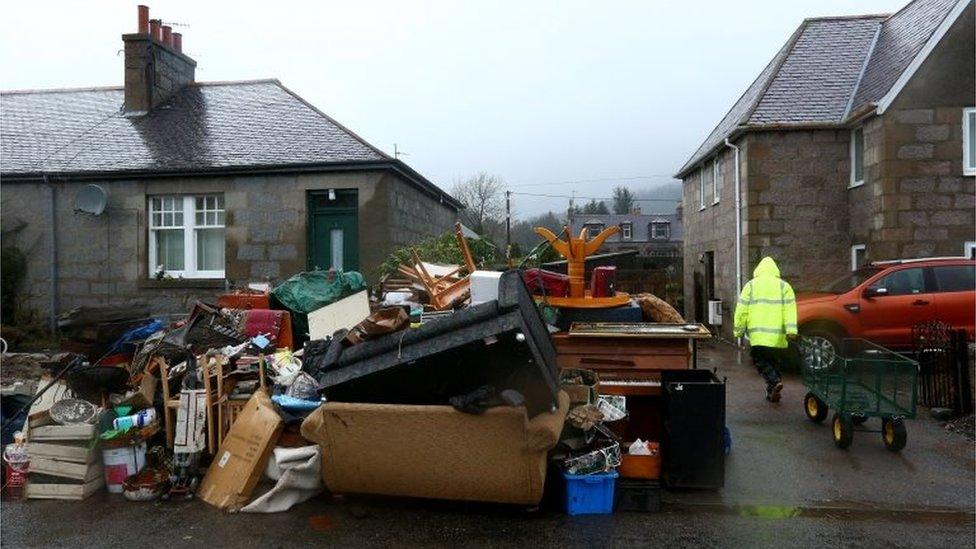
A clear-up operation was under way in Ballater
Sepa said the worst of the current flooding appeared to be over, with river levels now falling.
But it warned that transport disruption, especially on the roads was likely to continue for some time.
A Met Office yellow warning for rain is in place in Aberdeenshire for throughout Wednesday and Thursday but the local council said river levels had peaked and were slowly falling.
Aberdeenshire Council chief executive Jim Savege said: "We've had positive discussions with the Scottish government over access to funding to help us progress repairs, and we will be having ongoing conversations about how we can help minimise flood risk in a number of communities in the future."
Scottish Fire and Rescue Service (SFRS) chief officer Alasdair Hay praised crews, volunteers and communities for their response to devastation caused by Storm Frank.
SFRS received 350 flooding-related calls between Wednesday 30 December and Tuesday.
Mr Hay said: "Alongside our communities many agencies and volunteers have worked tirelessly to help and support those affected. I want to pay tribute to all those who have worked so hard to support their communities.
"However, I want to pay particular tribute to all our SFRS staff right across the country as their efforts have been, and continue to be, extraordinary."
- Published5 January 2016
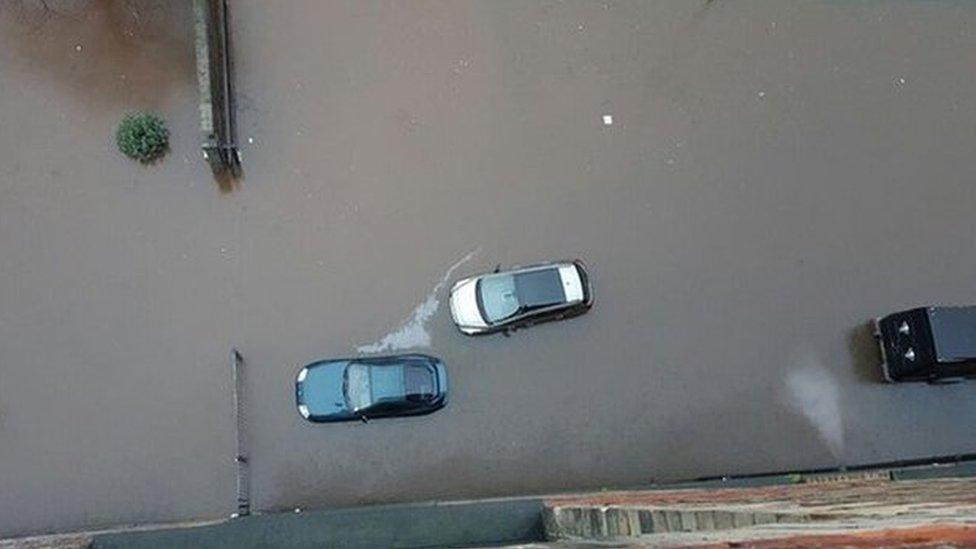
- Published6 January 2016
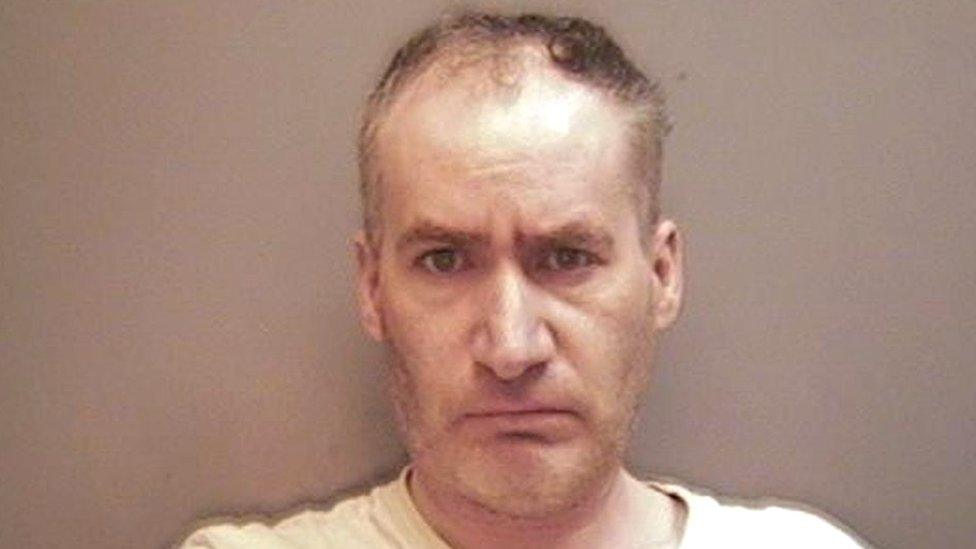
- Published5 January 2016
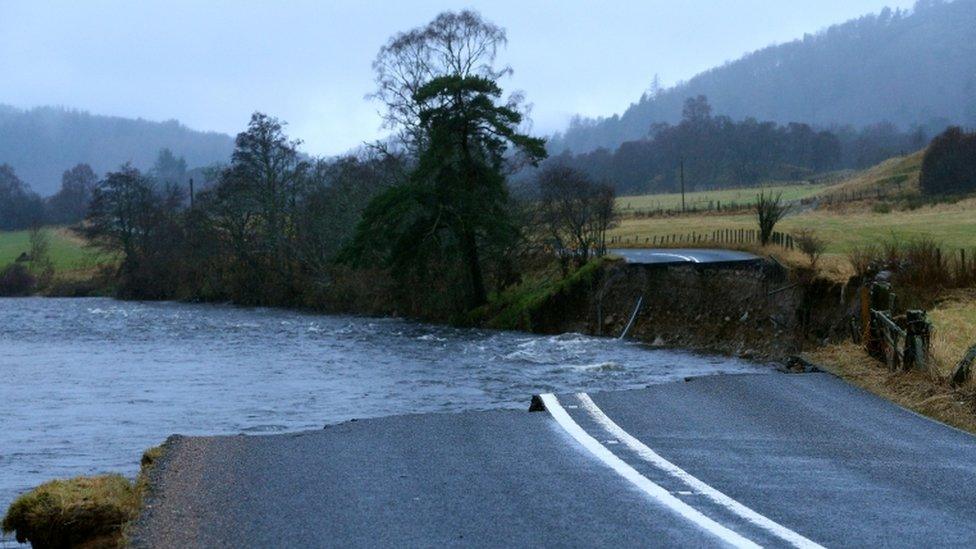
- Published5 January 2016
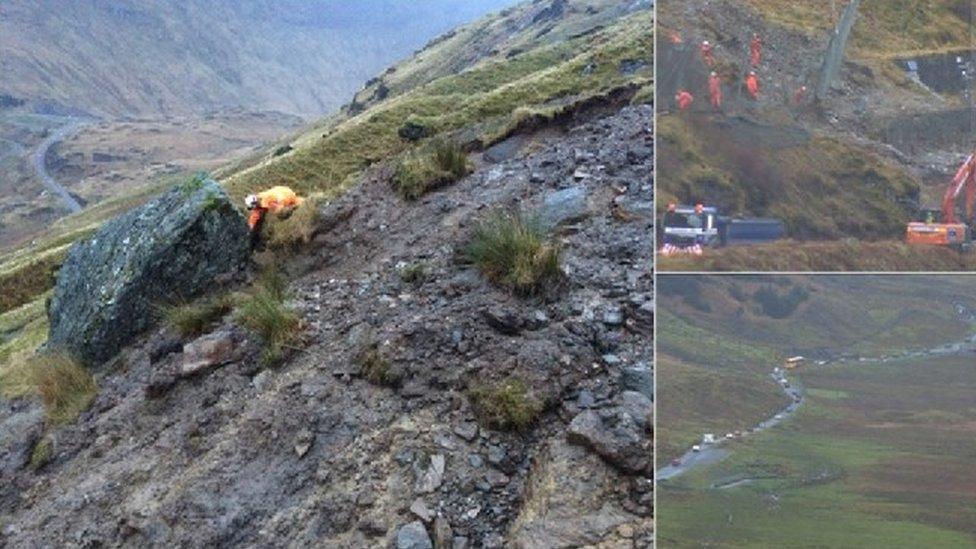
- Published5 January 2016
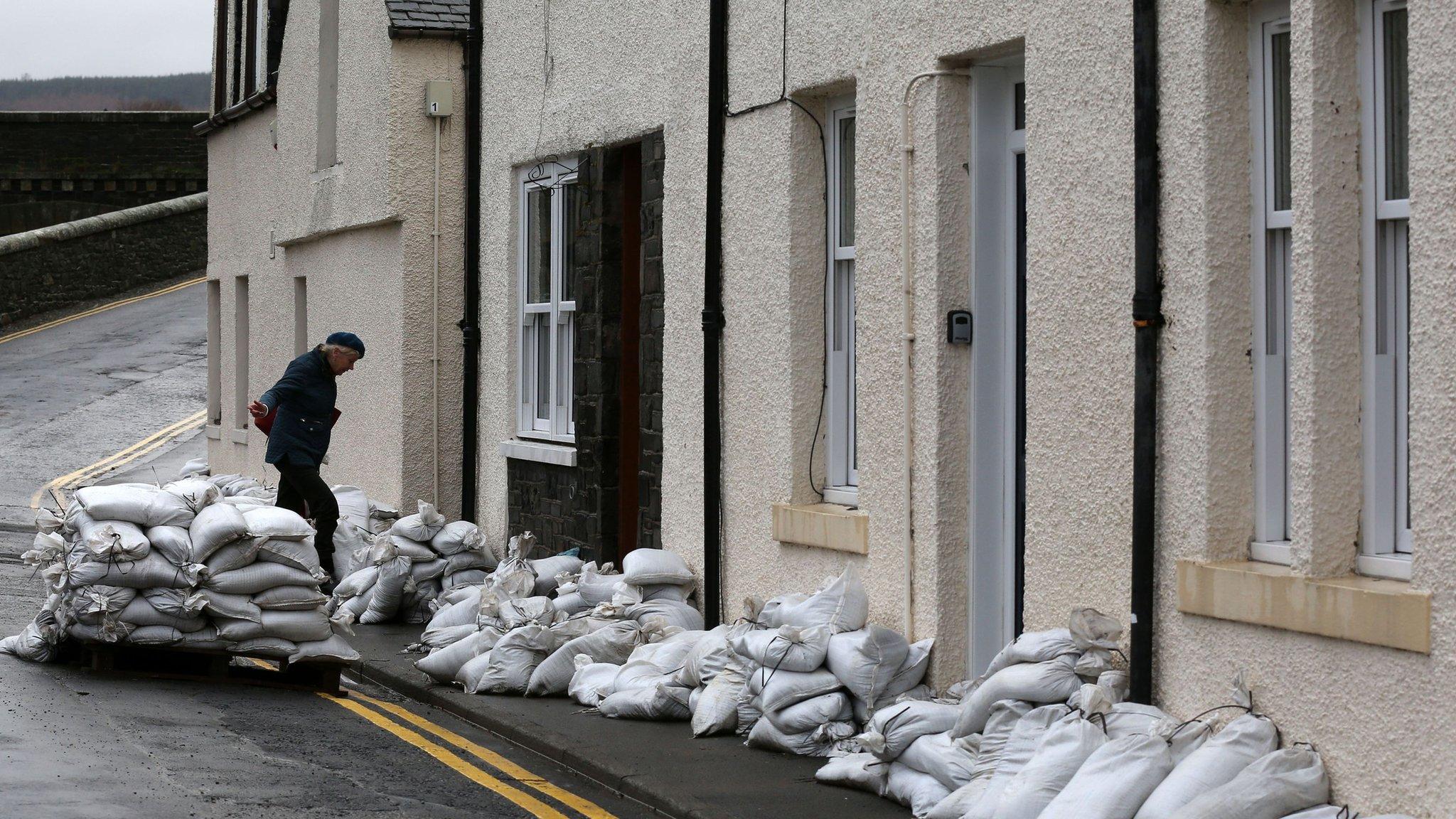
- Published5 January 2016
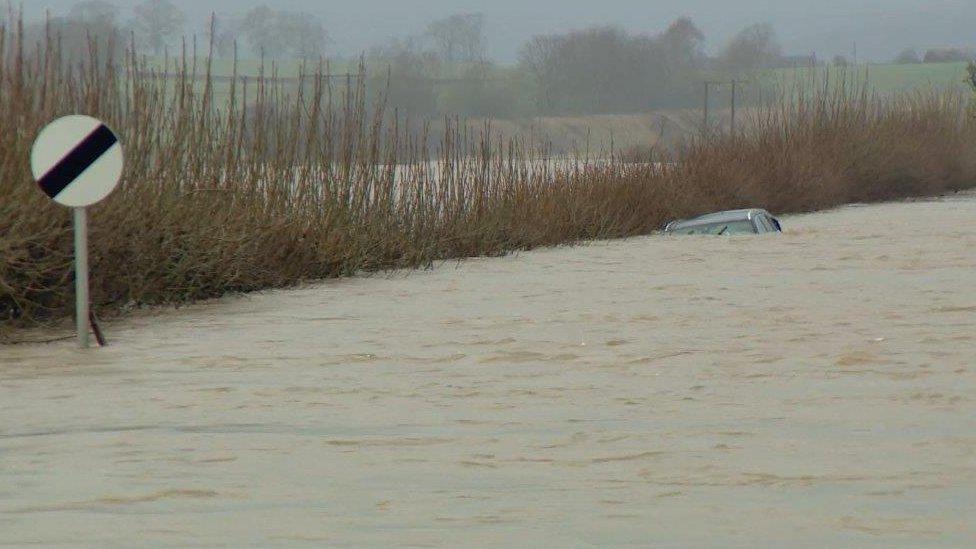
- Published4 January 2016
